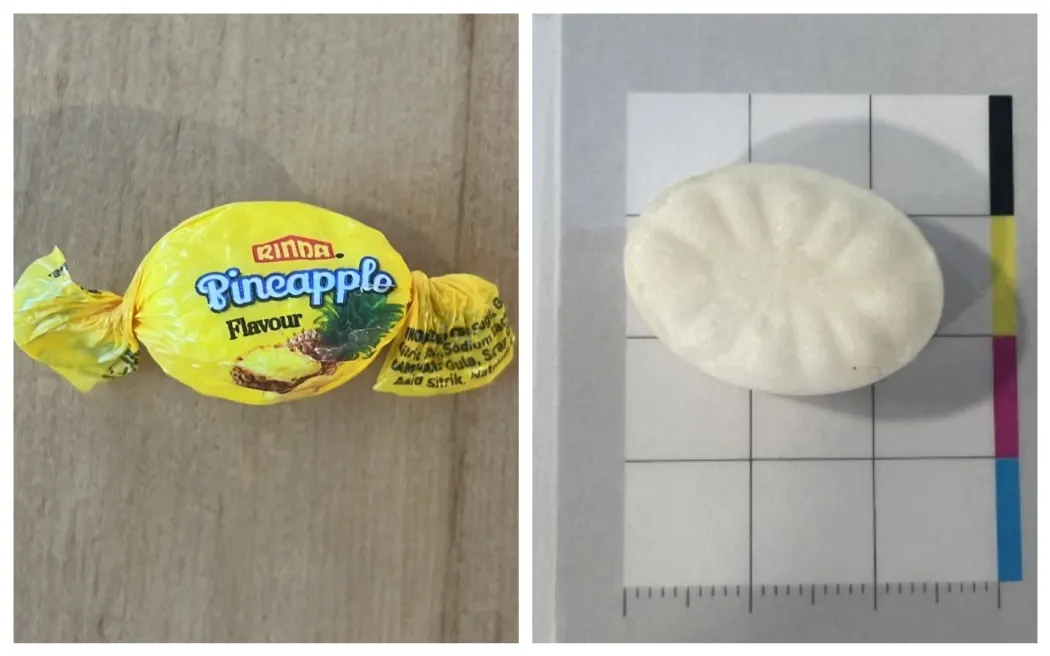
Lollies containing a "potentially lethal dose" of methamphetamine were distributed in food parcels from the Auckland City Mission after they were donated by a member of the public.
The mission was alerted when a parcel recipient reported "funny tasting" lollies, and missioner Helen Robinson says she is "absolutely devastated" by the turn of events.
The Drug Foundation said a lolly checked contained 3g of meth - a "potentially lethal dose".
The white lolly was brought into one of its drug checking clinics in Auckland on Tuesday afternoon.
Foundation executive director Sarah Helm said "a common dose to swallow is between 10-25mg, so this contaminated lolly contained up to 300 doses".
"Swallowing that much methamphetamine is extremely dangerous and could result in death."
In a statement, the mission said the Rinda brand pineapple lollies in a sealed retail-sized package were donated by an unknown member of the public.
"As a measure of safety, lollies still on site were tested by NZ Drug Foundation. Tests confirmed that the lollies tested contained potentially lethal levels of methamphetamine.
"We are in the process of contacting possible recipients to inform them of the issue and give them guidance on next steps. Public safety is our key concern."
The mission said it only accepted commercially manufactured food for inclusion in food parcels and the lollies appeared as such when donated.
It was "deeply concerned" and was working with the NZ Drug Foundation and police, it said.
Helm said "We don't know how widespread these contaminated lollies are, so we recommend not eating any Rinda brand pineapple lollies if you have them".
"If you or someone you know has eaten one and feels unwell, call 111 immediately."
Robinson said anyone concerned they might have received one of the lollies should called 111 and if they were feeling unwell, go to the nearest healthcare provider urgently, or also call the national poison line on 0800 764 766.
Symptoms might include:
- Chest pain
- A racing heart
- Seizures
- Hyperthermia
- Delirium
- Loss of consciousness
The mission said police were investigating.
The Drug Foundation said it has notified High Alert, who are part of the National Drug Intelligence Bureau, responsible for drug harm notifications.












